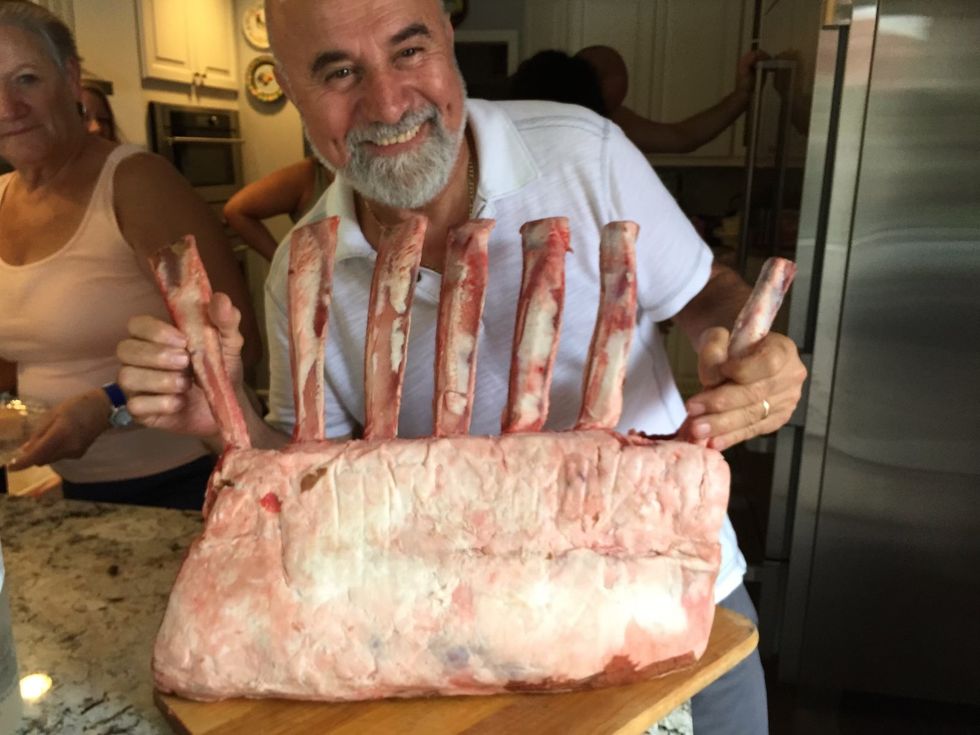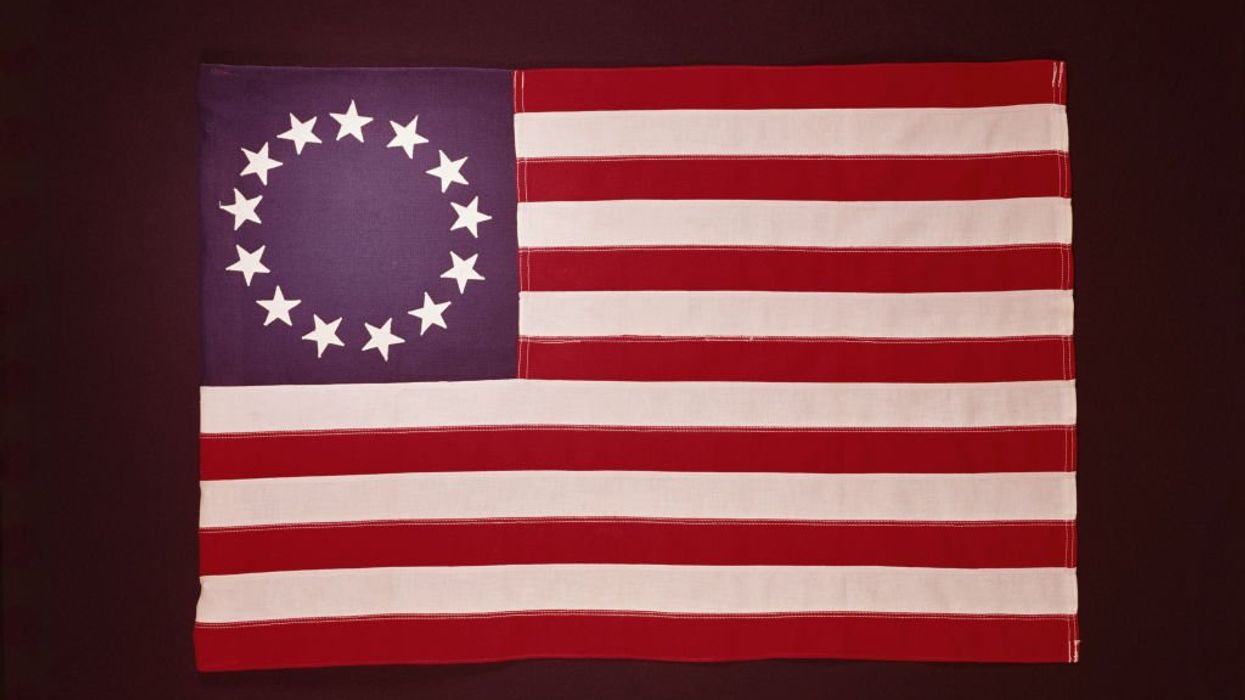
H. Armstrong Roberts/Getty Images

Align's panel of patriots share the art, books, music, and moments that make them proud to be Americans.
"Red Headed Stranger" by Willie Nelson (1975). This ghostly concept album by the Texas outlaw singer is about a man in the Old West on the run after killing his wife and her lover. It is about pain, passion, and redemption. Pure as branch water and possessed of the narrative power of a biblical parable, "Red Headed Stranger" is as perfect a piece of Americana as ever was. When I play this album, I know that no matter how far we stray from God, a country that can produce Willie Nelson is not lost.

"Up from Slavery," by Booker T. Washington.
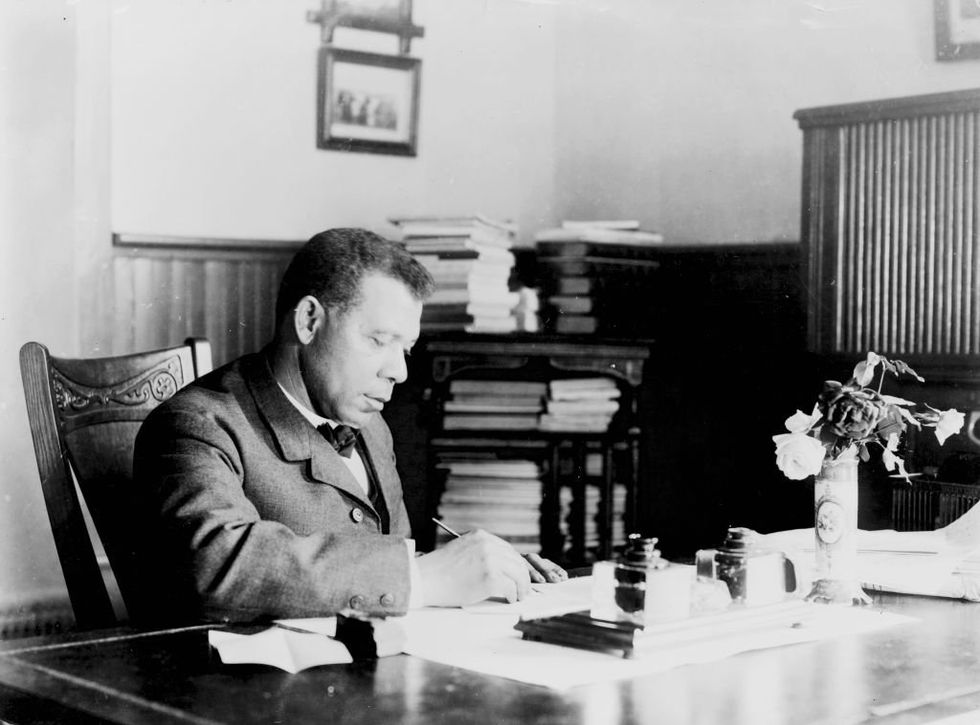
Will Smith's 2006 film "The Pursuit of Happyness" is all about the American dream. The film follows a single father struggling to break through in the business world. Spoiler alert: There's a very happy ending. The moment that matters is one of the final shots. We watch Smith's character, fresh from learning he got the job he dreamed about for so long, walking into a crowded street. He's dizzy, unsure where to go, and his face reflects a thousand emotions at once. Elation. Relief. Joy. The knowledge that he'll be able to care for his young son without worrying about his next paycheck. He starts applauding himself, and his smile couldn't grow any wider.
It's the precise moment when his American dream becomes real, and it's glorious.
The Pursuit of Happyness: Chris is hiredwww.youtube.com
"Independence Day" (1996). As unusual as it sounds, this movie brought the entire country together against a true enemy. Though it was a fictional film, it perfectly symbolized unity brought on by a sinister evil.
I say this jokingly, I think, but I hope it doesn’t take an alien invasion to bring us all back together. God bless America!
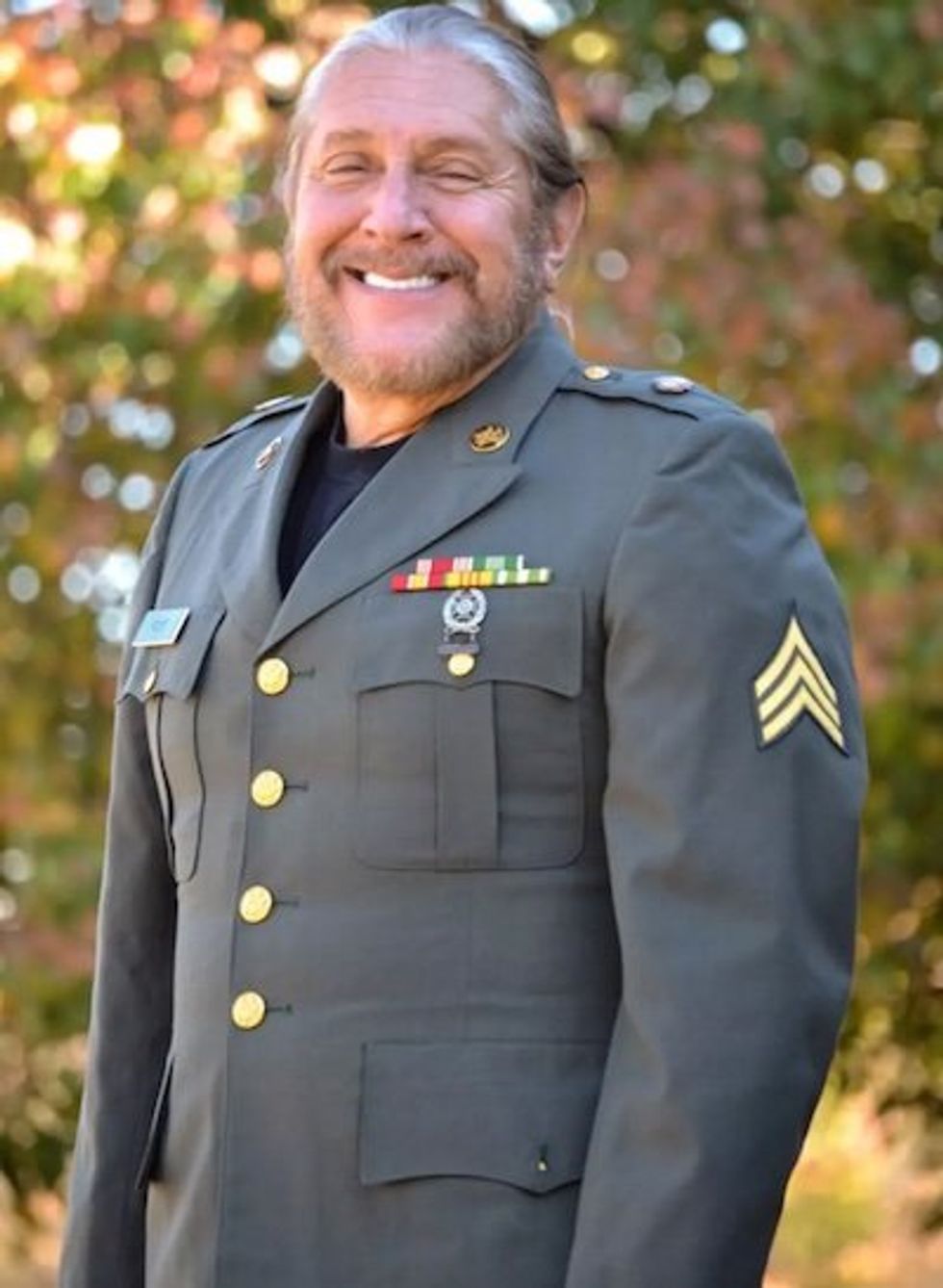
I periodically re-read the Gettysburg Address. And when I do, remind myself of what was happening in our country at that time, so that when today, things feel divided or fractured, we can remind ourselves of how important the cause of liberty is and how small our differences actually are.
Delivered at the dedication of the Soldiers' National Cemetery at Gettysburg, Pennsylvania
Four score and seven years ago our fathers brought forth, on this continent, a new nation, conceived in Liberty, and dedicated to the proposition that all men are created equal.
Now we are engaged in a great civil war, testing whether that nation, or any nation so conceived and so dedicated, can long endure. We are met on a great battle-field of that war. We have come to dedicate a portion of that field, as a final resting place for those who here gave their lives that that nation might live. It is altogether fitting and proper that we should do this.
But, in a larger sense, we can not dedicate — we can not consecrate — we can not hallow — this ground. The brave men, living and dead, who struggled here, have consecrated it, far above our poor power to add or detract. The world will little note, nor long remember what we say here, but it can never forget what they did here. It is for us the living, rather, to be dedicated here to the unfinished work which they who fought here have thus far so nobly advanced. It is rather for us to be here dedicated to the great task remaining before us — that from these honored dead we take increased devotion to that cause for which they gave the last full measure of devotion — that we here highly resolve that these dead shall not have died in vain — that this nation, under God, shall have a new birth of freedom — and that government of the people, by the people, for the people, shall not perish from the earth.
Abraham Lincoln, November 19, 1863
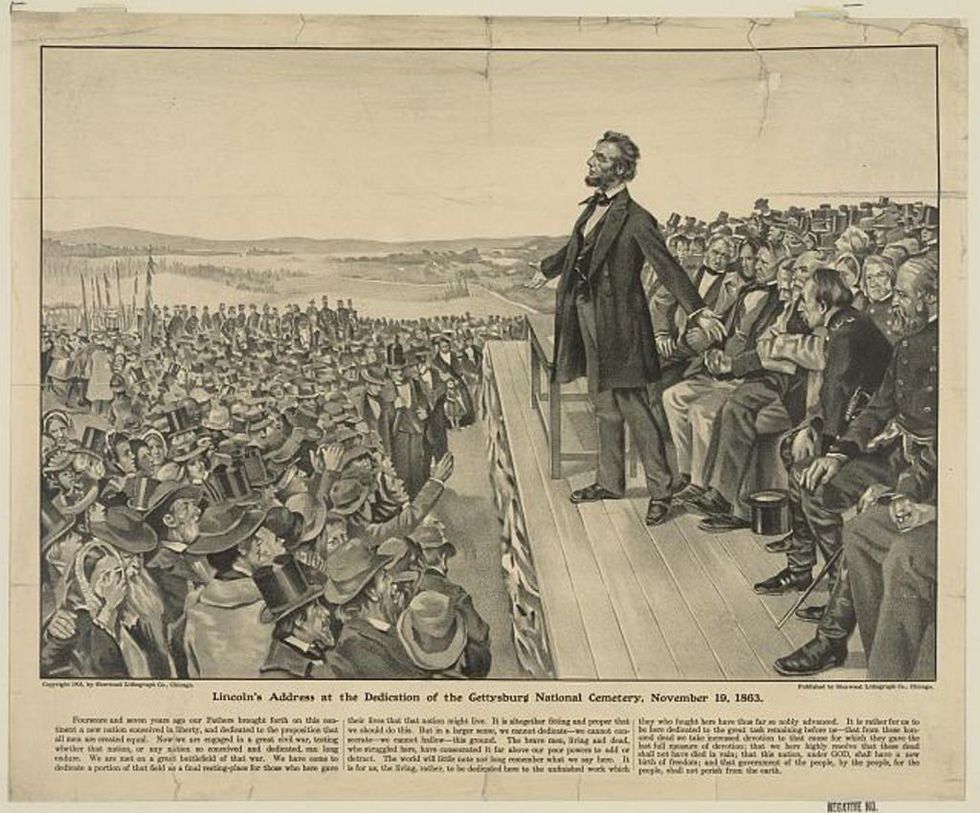
In the 19th century, many countries had female symbols of the nation. These have fallen by the wayside, except for Marianne in France. There's a vast trove of historic imagery of Columbia, the female symbol of America. She is a wonderful national symbol, sadly fallen out of use save for the famous Columbia Pictures logo.
There are many images of Columbia to choose from, but I like this cover from the book "The Story of the Constitution," produced by the United States Constitution Sesquicentennial Commission. Columbia stands watch over the Constitutional Convention, an eagle and flag behind her, with a blue ribbon labeled "We the People" emerging from the flag and encircling the fasces — a symbol that in America, governmental power rests with the people. We need a Columbia revival.
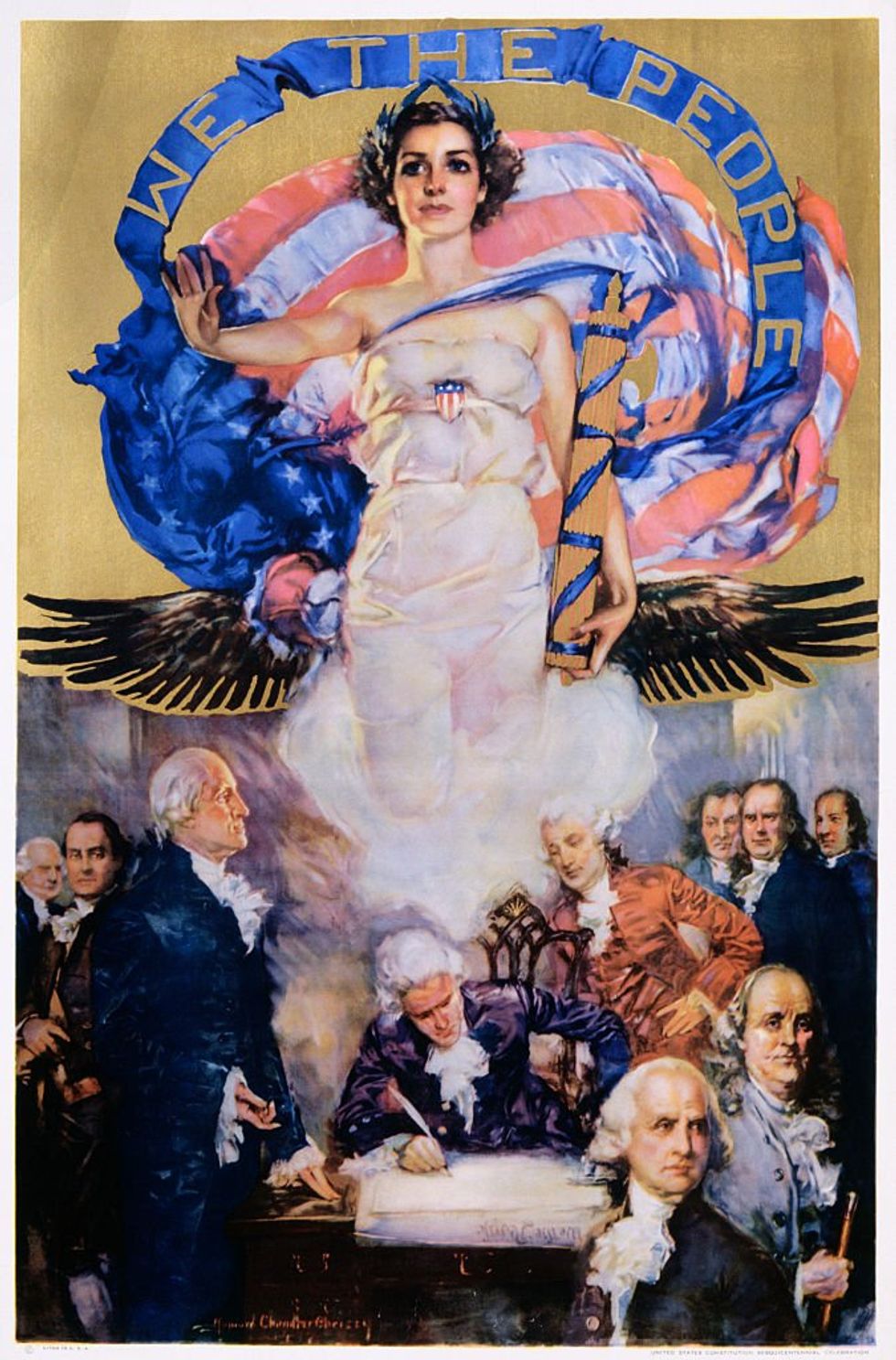
She liked the enormous sky and the winds, and the land that you couldn’t see to the end of. Everything was so free and big and splendid.
—Laura Ingalls Wilder, "Little House on the Prairie"
Laura Ingalls Wilder was my first teacher of American history — not the history of Washington but the history of daily life as a young, curious girl in a new land. I would marvel at a childhood so simple, so “deprived,” that one piece of candy and an orange — maybe a bit of ribbon, if you were really lucky — in your stocking Christmas morning was considered a lavish bounty for which you would be grateful all year. Laura's father could build a log cabin in a few days by himself, and her mother could prepare dinner in a covered wagon with no appliances. Laura’s frontier was a place worth pioneering, worth the hard battle to win over the land and claim it for all time. Is it still? That seems to be the question again before us.
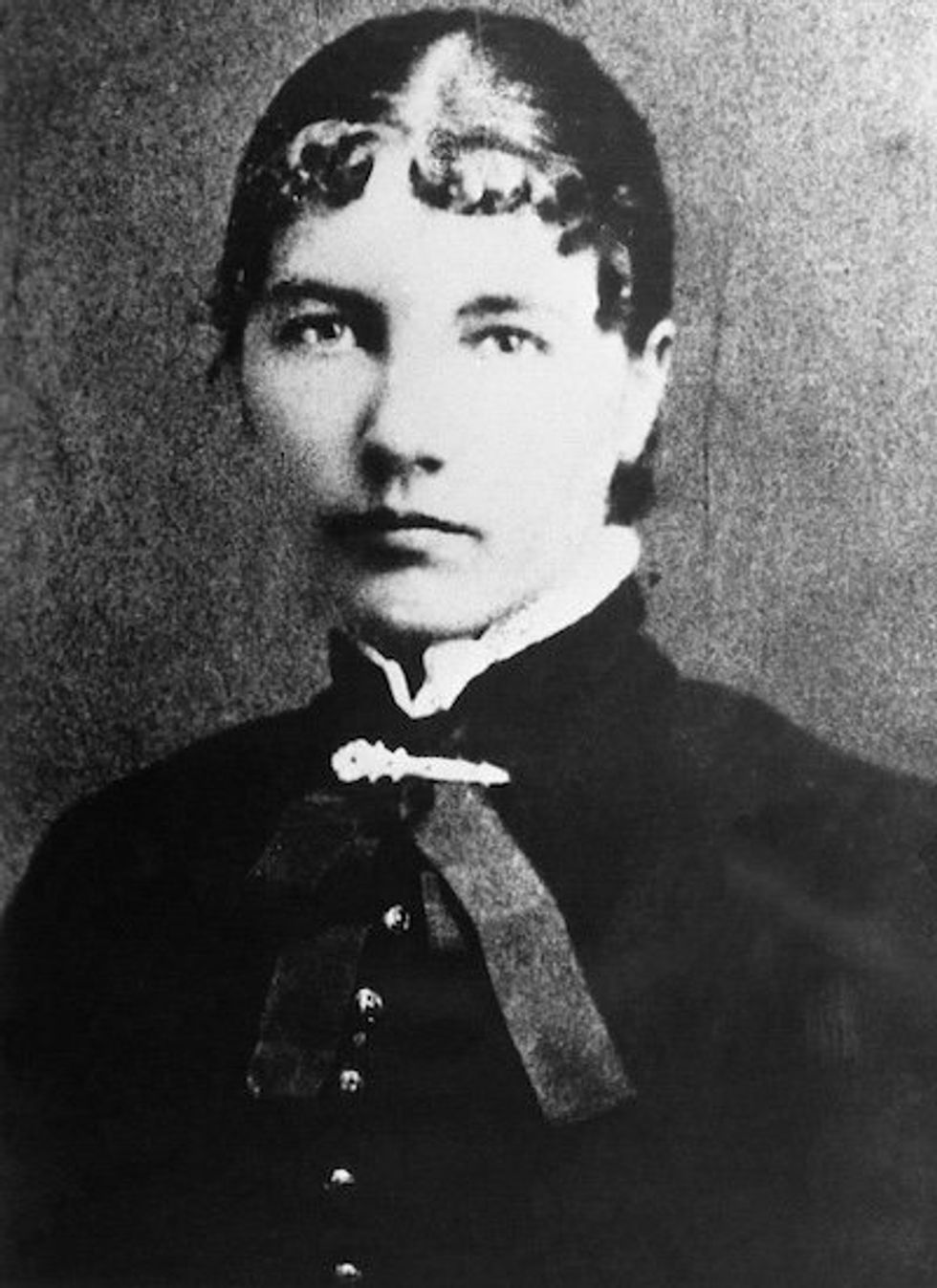
Lovers of poetry know Alfred, Lord Tennyson, as a writer of surpassingly graceful and moving verse. But few realize he’s also the author of what is, to my knowledge, the manliest assessment of the American revolution ever written by an Englishman.
Almost a hundred years on from the first Independence Day, Tennyson invites Britain to look back on the war not with resentment but with admiration: “Strong mother of a Lion-line / Be proud of those strong sons of thine / Who wrench’d their rights from thee!”
It’s short, perfect for reciting as a barbecue toast, and appropriate this Fourth of July, when our older brothers across the pond are facing a bleak election of their own. Tennyson tells his countrymen that by insisting on their rights as Englishmen, the founding generation “retaught the lesson thou hadst taught / And in thy spirit with thee fought” — suggesting that the noble Anglo-American lineage of freedom can be revived even in moments of apparent discouragement and defeat. Let’s hope that’s still the case.
O thou that sendest out the man
To rule by land and sea,
Strong mother of a Lion-line,
Be proud of those strong sons of thine
Who wrench'd their rights from thee!
What wonder if in noble heat
Those men thine arms withstood,
Retaught the lesson thou hadst taught,
And in thy spirit with thee fought
Who sprang from English blood!
But thou rejoice with liberal joy,
Lift up thy rocky face,
And shatter, when the storms are black,
In many a streaming torrent back,
The seas that shock thy base!
Whatever harmonies of law
The growing world assume,
Thy work is thine the single note
From that deep chord which Hampden smote
Will vibrate to the doom.
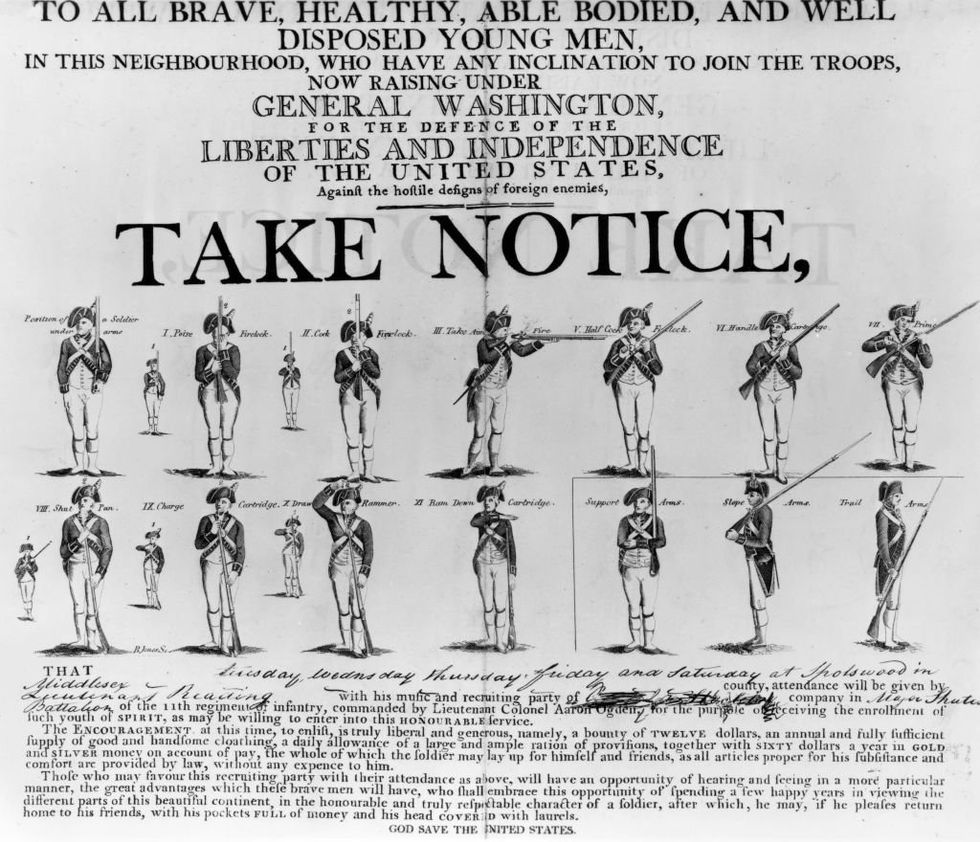
“Empire of the Summer Moon” by S.C. Gwynne is a fantastic book and a beautiful reminder of the immense struggles we had as a country shortly after we were born. The West was still untamed. It was a war. We didn’t steal land from the Indians. We fought them in an epic battle that was gruesome and long because they were worthy adversaries. The story of America is an arduous journey with a million dead ends, but we all got here together. That’s something to be proud of — warts and all.
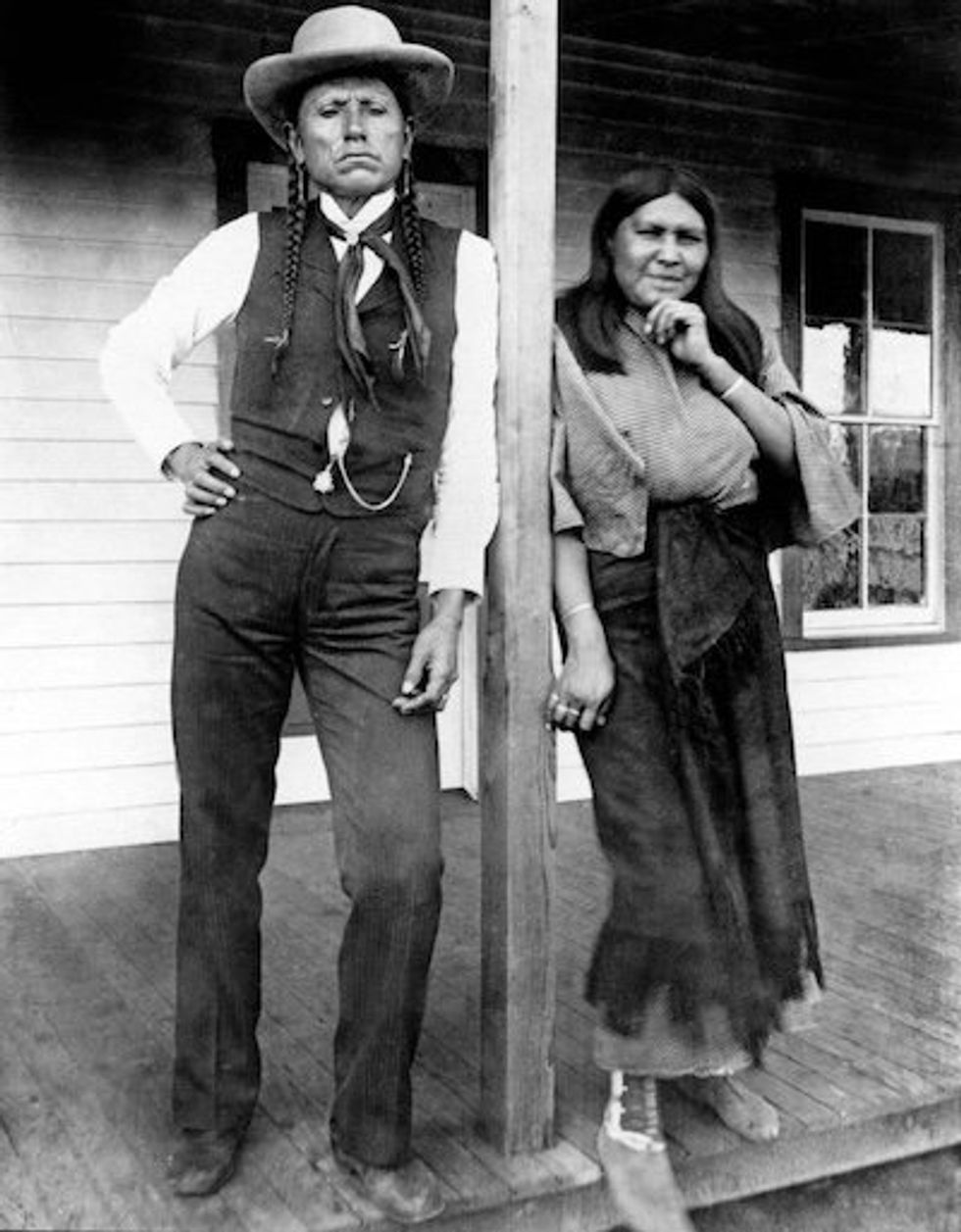
For me, there is only one answer: America is not a country for servile men. As Samuel Adams said in his rousing oration on American Independence: “If ye love wealth better than liberty, the tranquility of servitude than the animating contest of freedom — go from us in peace. We ask not your counsels or arms. Crouch down and lick the hands which feed you. May your chains sit lightly upon you, and may posterity forget that ye were our countrymen!” Americans must choose liberty over despotism, even if it is sugarcoated, as it is today, with loan forgiveness, junk food, antidepressants, endless porn, and all other sedatives and somas that sap our spiritedness.
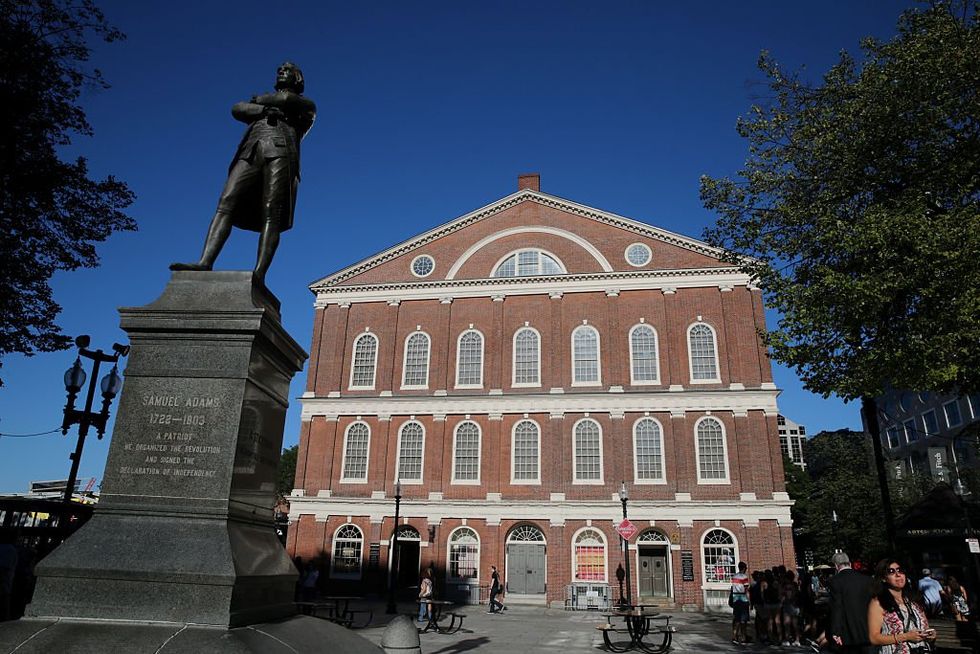
I recommend a little-known painting by William Halsall: “The Mayflower in Plymouth Harbor.” Painted in 1882 as memory of America’s founding generation began to fade, it depicts the Pilgrims’ ship at dawn. Or is it dusk? One cannot quite tell if the sun is rising or setting on America.
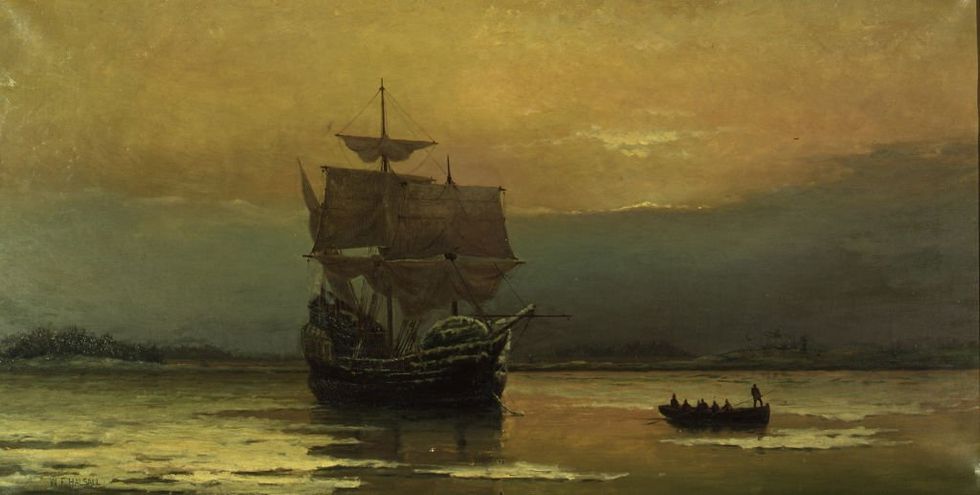
After Muhammad Ali returned victorious from Zaire after defeating George Foreman in the Rumble in the Jungle, a reporter asked him, "What did you think of Africa?" After he outwardly rejected the war in Vietnam and embraced Islam, many progressives saw Ali as a hero of Marxist anti-Americanism.
The trip to Zaire itself was viewed by many as a "return to Africa"-type statement, but Ali instantaneously put that to bed with this quote, one of his all-time classic whimsical responses: "Thank God my granddaddy got on that boat."
After all the turmoil and criticism, it acknowledged that at the end of the day, he was a pure-blooded American and wouldn't have it any other way. Sort of the conclusory response to "no Vietcong ever called me n****er."
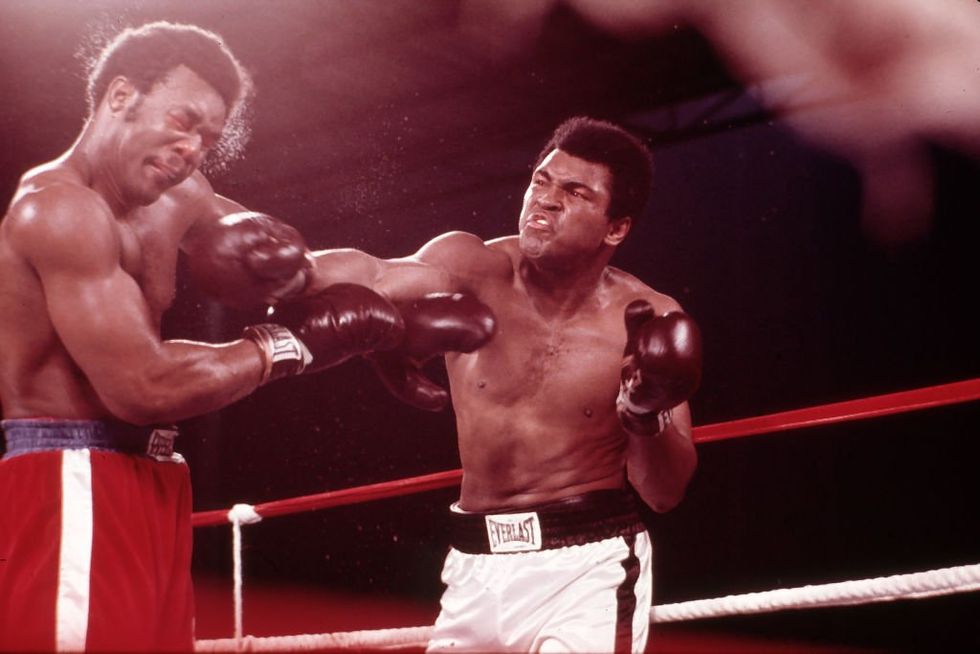
I don't get the problem people have with George Stevens' "Giant." To me, it's an American "Leopard." And Rock Hudson does carry that. I am not a James Dean fetishist, but his conception of Jett Rink is advanced. For the first half he's a broken-down, incomprehensible hobo very similar to Joaquin Phoenix's Freddie Quell in "The Master."
Then, when the oil is struck, he turns into Howard Hughes in his latter days — he goes from zero to 100 to brick wall in five seconds. His whole final scene at the banquet — wow!
Imagine if he had lived to go on to do stuff with Peckinpah and Frankenheimer and Lumet and Kubrick and Richard Lester. He would have been reason enough for Godard to come to America to make "Bonnie and Clyde" with him and Tuesday Weld.
All right, enough of my cinema speculations!
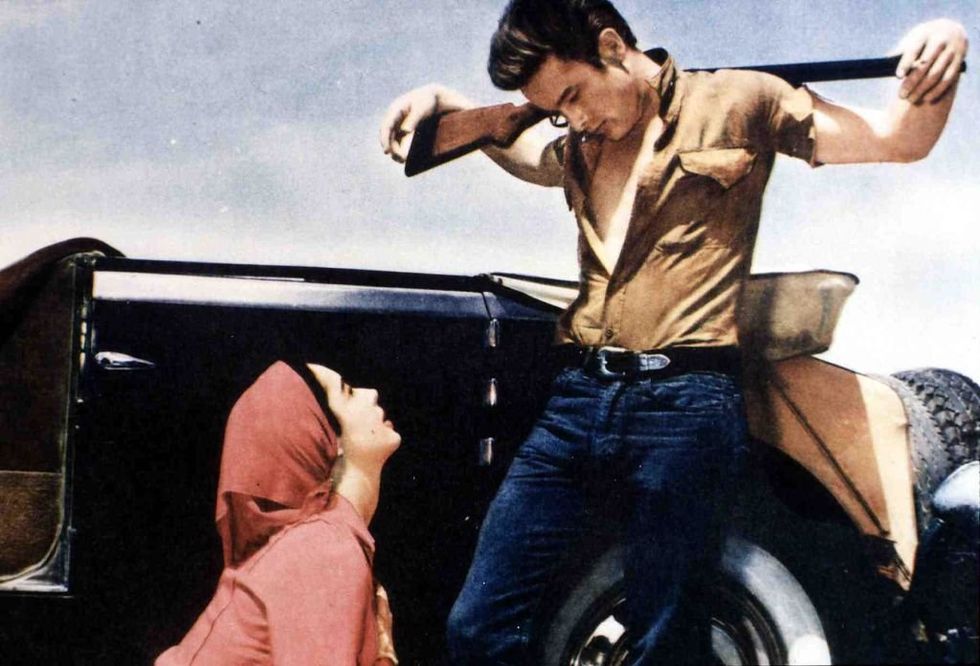
July 4 is, of course, the date we officially celebrate American independence, but John Adams believed the more momentous day was July 2, when the delegates of the Continental Congress voted to draft the Declaration of Independence and sever ties with Great Britain once and for all.
Adams wrote two letters to his wife, Abigail, on July 3 explaining the significance of the decision and sharing his relief, hopes, and fears about the struggle to come. His closing lines still strike a chord:
"You will think me transported with enthusiasm; but I am not. I am well aware of the toil, and blood, and treasure, that it will cost us to maintain this declaration, and support and defend these states. Yet, through all the gloom, I can see the rays of light and glory; I can see that the end is more than worth all the means, and that posterity will triumph, although you and I may rue, which I hope we shall not."
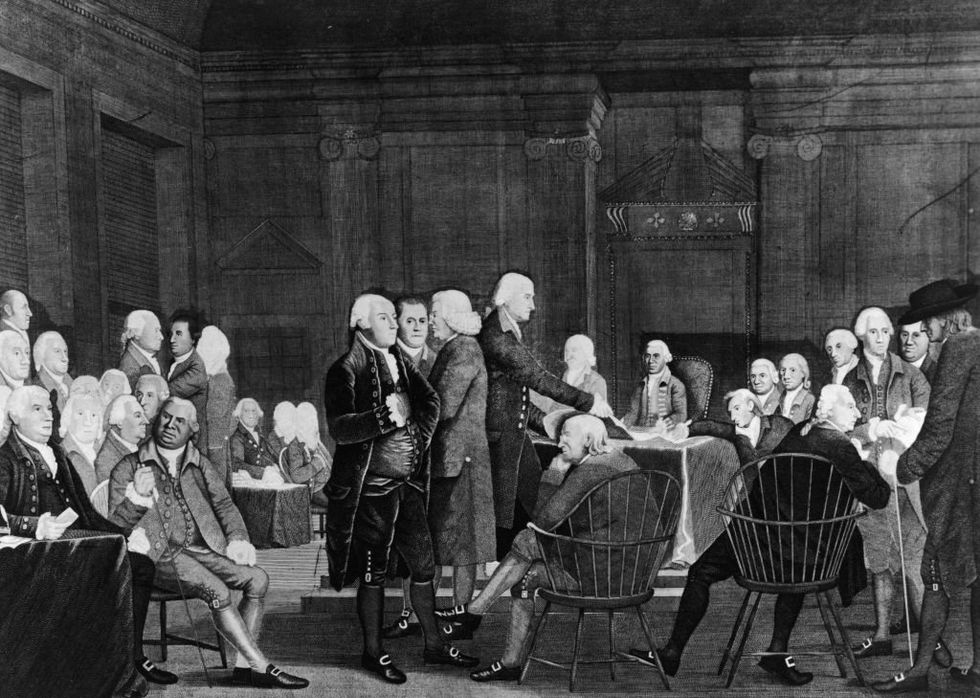
My favorite immigrants are the ones who become Americans. So thank God my immigrant father became a U.S. citizen! That’s one less daddy issue for me.
My father came from Argentina in the late 1970s. He crossed the border with maybe a couple years of high school education and no English. His business in San Miguel de Tucumán had gone under — a butcher shop next to his childhood home — and he was in debt.
When he got to New York, he was able to find work in a deli in Queens. One day, he sat in the back of the store and cried. This wasn’t his store. This wasn’t his country. He was experiencing a new low that was truly foreign to him.
But he was in America — though he didn’t realize it at the time. Not the geographical reality — of course he knew that. It was the American ethos he had yet to grasp.
My father worked and worked and worked. He built a family, a business (Casablanca Meat Market in Spanish Harlem), and an appreciation for the United States that I’m not sure I can fully understand. I was born here, after all. I didn’t choose to make the journey.
I often joke that my father taught me the value of hard work ... and I plan on living off of his hard work for as long as I can. He butchered so that his son could make jokes. He’s my favorite American.
